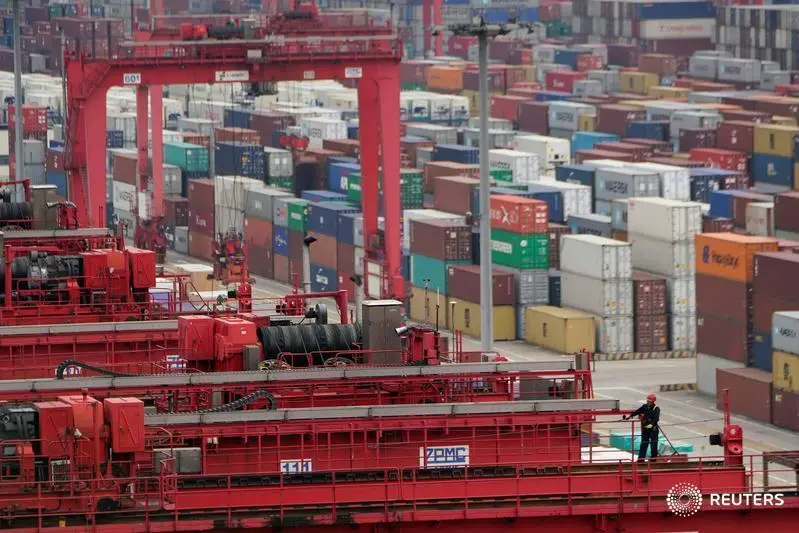PHOTO
More than 80 percent of global investors plan to increase either significantly or moderately their organization’s allocation to Chinese investments in the next 12 months and only four per cent plan to reduce China exposure, a new study revealed.
According to an Economist Intelligence Unit survey on global investors’ China exposure, commissioned by Invesco, nearly 90 percent of respondents have “dedicated investment exposure” to China, where “dedicated” referred to those investments that are deliberately China-specific and not part of a broader regional or other grouping such as emerging markets.
This could include specific allocation to equities, fixed income or alternative assets through managed funds, ETFs or other investment vehicles.
Marty Flanagan, President and CEO of Invesco said: “The findings are promising and support our view that China’s massive growth and continuing efforts to allow greater access to its markets represent a significant and increasingly attractive opportunity for both domestic and global investors."
"A thoughtful allocation of Chinese asset classes can play a meaningful role in helping investors achieve their long-term investment objectives,” he added.
The China Position, a survey of 411 asset owners and professional investors across North America, Asia Pacific (APAC) and Europe, Middle East & Africa (EMEA), collected responses from executives at global organizations on exposure to Chinese investments.
Respondents included asset and wealth managers, assets owners including insurance companies and sovereign wealth funds as well as commercial banks. Assets under management at surveyed organizations spanned from $500 million to greater than $10 billion.
Trade War impacts not all negative
Respondents gave mixed views when asked about the impact US-China trade war will have on investment decisions.
While 43 percent of respondents said it will have a negative impact on their investment decisions, 42 percent said it will have a positive impact. North American respondents are the most optimistic, with 53 percent of respondents seeing “some” or “significant’ positive impact; APAC investors are the most negative, with nearly 50 percent expecting a “moderate negative impact” and an additional 8 percent a “significant negative impact”.
Despite the variation in expected impact, organizations still expect to either “increase significantly” or “increase moderately” their China exposure when asked what result their organization’s trade war forecast will have on China investment levels.
In both APAC and EMEA, over 67 percent of respondents expect to increase China exposure, and in North America 71 percent expect to increase in the next 12 months.
Bright China economic outlook
Respondents remain positive about the outlook for the global economy, and even more positive on China.
About two-thirds of respondents believe global economic conditions over the next 12 months will be better than current conditions, while nearly three-quarter believe economic conditions in China will be better.
North American respondents are broadly bullish in their economic outlook across markets, with over 80 percent of respondents expecting better economic conditions both globally and in China over the next 12 months.
Investors in EMEA and APAC, meanwhile, are considerably more optimistic on China versus the global economy; 65 percent of EMEA respondents believe that global economic conditions will be better versus 73.5 percent who said China economic conditions would be better. In APAC, sentiment is slightly softer on both outlooks, with 53 percent seeing improvement globally and 66 percent in China.
Technology innovation (such as artificial intelligence, robotics, etc.) is the top investment theme most likely to attract investment from the organizations surveyed at 58 percent of respondents, followed closely by financial services at 51 percent and “New Economy” services such as healthcare, IT and education in third at 41 percent. The renewable energy segment represented another significant theme that was likely to attract investment, particularly in North America at 39 percent of respondents, tied with “New Economy” services for likely investment.
Jason Wincuinas, Senior Editor at Economist Intelligence Unit, said: "Despite the ups and downs of global stock exchanges, the 12-month outlook from some of the world’s largest investors was distinctly positive. We also learned that these organizations are leveraging China’s burgeoning financial-market reforms, with the overwhelming majority claiming to have some form of onshore business operations."
(Writing by Seban Scaria seban.scaria@refinitiv.com, edited by Anoop Menon)
Our Standards: The Thomson Reuters Trust Principles
Disclaimer: This article is provided for informational purposes only. The content does not provide tax, legal or investment advice or opinion regarding the suitability, value or profitability of any particular security, portfolio or investment strategy. Read our full disclaimer policy here.
© ZAWYA 2019




















